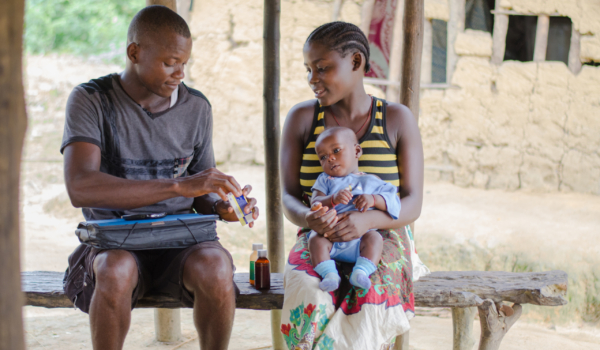In November 2019, members of the Last Mile Health team took part in the International Symposium on Community Health Workers in Dhaka, Bangladesh, which convened academics, government policymakers, and practitioners from 35 countries to discuss strengthening primary healthcare by employing, optimizing, and managing community health workforces. As only the second convening of its kind, the Symposium is a sign of the growing momentum to prioritize integrated community health systems globally.
In his keynote session, Last Mile Health’s Director of Advisory Engagements, Kyle Muther, highlighted important lessons from Bangladesh, Brazil, Ethiopia, and Liberia—countries who are outperforming their peers in the design and scale of national community health worker programs and provide vital evidence that can be used to strengthen and inform programs around the globe.
“This research initiative seeks to answer a very relevant question for the Symposium,” says Muther. “How have exemplar community health programs in Ethiopia, Bangladesh, Brazil, and Liberia achieved impact, scale, and sustainability and how can these lessons be used by policymakers and others designing or adapting community health systems to help achieve universal health care.”
Muther’s comments underscore the need to invest in the systems that support community health workers, support government-led coalitions, and leverage NGO partner expertise. Crucial to each country’s success was also a willingness to refine and adapt their program in response to best practices and new learnings. As one of the first countries to develop nationally-scaled community health worker cadres, Bangladesh’s commitment to innovation has enabled the country to achieve enormous advances in healthcare, including some of the longest life expectancies, lowest total fertility rates, and lowest under-five mortality rates in South Asia.
Throughout the Symposium weekend, members of the Last Mile Health team participated in side meetings that facilitated a dialogue and exchange of approaches to optimize community health worker programs. During an event hosted by the United States Agency for International Development, UNICEF, the World Health Organization, and the Bill and Melinda Gates Foundation, a group of practitioners, government officials, and implementers from nine country delegations reviewed recent tools and resources that support institutionalization of community health and approaches to strengthen measurement and learning.

S. Olasford Wiah shares learnings from the Implementation Fidelity Initiative and Programs Perceptions Study in Liberia. Photo courtesy of the Community Health Impact Coalition.
During the meeting, Last Mile Health’s Senior Technical Coordinator for Community Health Systems, William E. Walker Jr., and Liberia Ministry of Health’s Director for Community Health Services Division, S. Olasford Wiah, shared learnings from the Implementation Fidelity Initiative and Programs Perceptions Study in Liberia. They highlighted the use of a developed mix-method approach for real time monitoring and the evaluation of the Community-Based Information System in Liberia, which is a set of tools used to collect health data from services delivered at the community level. They also provided a deep dive overview of the Implementation Fidelity Initiative, which helps identify how the National Community Health Assistant Program is being implemented according to the design of program policies and systems and the Program Perception Study, which highlights stakeholders perceptions of the National Community Health Assistant Program. Using both qualitative and quantitative data, the results of these studies help inform improved design, implementation, and ultimately, service delivery.
The culmination of the conference included the launch of Bangladesh’s new National Community Health Worker Strategy—further emphasizing the country’s commitment to innovation, and the role of community health workers as essential to improving access to care and strengthening primary healthcare systems.
Central to the Symposium’s agenda was elevating research on national community health worker programs, including the release of the highly anticipated framework for measuring community health workforce performance, which was published and co-authored by Last Mile Health staff members in collaboration with Aga Khan Foundation, Humana People to People, Liverpool School of Tropical Medicine, Population Council, Pathfinder International, Save the Children, and Zanmi Lasante thanks to support from USAID, UNICEF, the Bill and Melinda Gates Foundation. With an increasingly robust catalog of evidence highlighting the value and contributions of community health workers to national programs, Symposium participants and decision makers alike are leveraging recent findings to replicate large-scale health successes and bring the world even closer to achieving universal health coverage through high quality community health worker programs.




